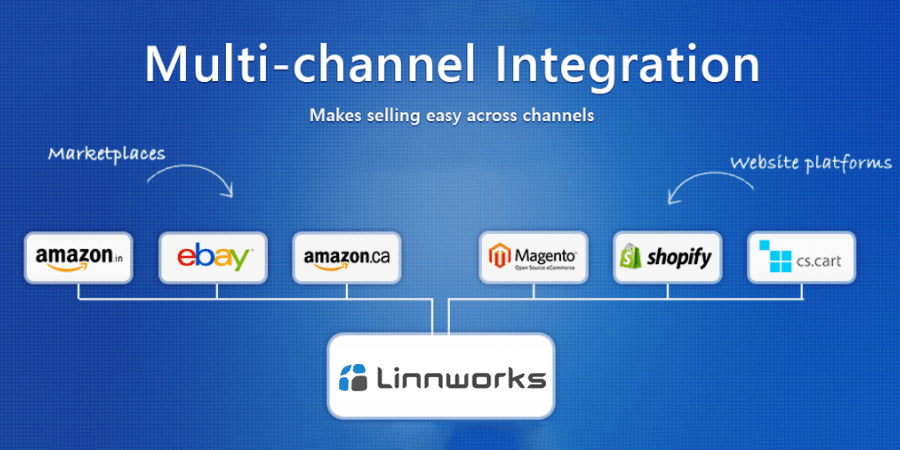In the modern digital marketplace, businesses face the challenge of reaching customers through multiple channels. Multi-channel selling has become a crucial strategy for maximizing visibility and sales. However, managing these diverse platforms can be complex, especially when it comes to integration. This blog explores the top platforms that offer the best integration for seamless multi-channel selling.
The Importance of Integration in Multi-Channel Selling
Multi-channel selling involves listing products on various online marketplaces, social media platforms, and e-commerce sites. The primary goal is to increase exposure and sales opportunities by tapping into different customer bases. However, without proper integration, managing these channels can lead to inefficiencies, such as inconsistent inventory levels, scattered customer data, and fragmented sales reporting.
Integration refers to the ability of different software systems to work together seamlessly. For multi-channel selling, this means that your e-commerce platform should be able to synchronize with various sales channels, inventory management systems, and customer relationship management (CRM) tools. Effective integration ensures that all data is accurate and up-to-date, providing a unified view of your business operations.
Top Platforms Offering Superior Integration
Shopify
Shopify is renowned for its robust integration capabilities. It supports integration with a wide range of sales channels, including Amazon, eBay, Facebook, and Instagram. Shopify’s App Store offers numerous apps and plugins that enhance integration with other systems, such as accounting software and email marketing tools. Its user-friendly interface and comprehensive support make it a popular choice for businesses looking to streamline their multi-channel selling efforts.
WooCommerce
WooCommerce, a WordPress plugin, provides excellent flexibility for multi-channel selling. With numerous extensions available, WooCommerce can integrate with major marketplaces like Amazon and eBay, as well as social media platforms such as Facebook. It also offers integration with various payment gateways and shipping solutions. WooCommerce’s open-source nature allows for customized integration, making it a versatile option for businesses with specific needs.
BigCommerce
BigCommerce is another leading platform known for its strong integration features. It supports connections with major marketplaces like Amazon and eBay, as well as social media platforms and comparison shopping engines. BigCommerce also integrates with popular ERP systems, accounting software, and shipping solutions, providing a comprehensive solution for managing multi-channel sales. Its built-in tools and integrations help businesses optimize their operations and enhance efficiency.
Magento
Magento, particularly its Adobe Commerce version, offers advanced integration capabilities for multi-channel selling. It supports integration with various marketplaces, social media platforms, and third-party applications. Magento’s flexibility allows for custom integrations, making it suitable for businesses with complex requirements. Its extensive ecosystem of extensions and integrations ensures that businesses can connect with a wide range of tools and services.
Salesforce Commerce Cloud
Salesforce Commerce Cloud provides a powerful solution for multi-channel selling with its robust integration capabilities. It offers seamless connections with major online marketplaces, social media channels, and CRM systems. Salesforce’s cloud-based platform ensures that all data is synchronized in real-time, providing a unified view of customer interactions and sales performance. Its advanced analytics and reporting features help businesses make informed decisions and optimize their multi-channel strategies.
Square Online
Square Online offers an integrated solution for multi-channel selling, particularly for small to medium-sized businesses. It connects with popular marketplaces and social media platforms, allowing businesses to manage their sales channels from a single interface. Square Online’s integration with payment processing, inventory management, and customer engagement tools makes it a convenient choice for businesses looking to streamline their operations.
Choosing the Right Platform for Your Business
Selecting the best platform for multi-channel selling depends on various factors, including your business size, industry, and specific needs. Consider the following when choosing a platform:
Integration Capabilities: Ensure the platform integrates seamlessly with your desired sales channels and third-party applications.
Ease of Use: Choose a platform that offers an intuitive interface and user-friendly features.
Scalability: Consider whether the platform can grow with your business and handle increasing sales volume.
Support and Resources: Evaluate the level of support and resources available, including customer service and documentation.
Final Words
Navigating multi-channel sales can be challenging, but choosing the right platform with superior integration capabilities can simplify the process and enhance your business’s efficiency. Platforms like Shopify, WooCommerce, BigCommerce, Magento, Salesforce Commerce Cloud, and Square Online each offer unique integration features that cater to different business needs. By selecting a platform that aligns with your requirements, you can streamline your operations, improve data accuracy, and ultimately drive success in the competitive digital marketplace.


